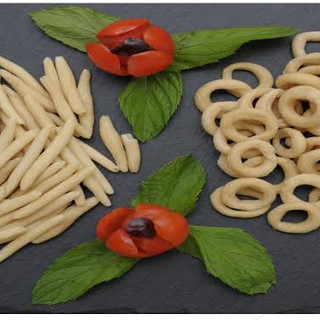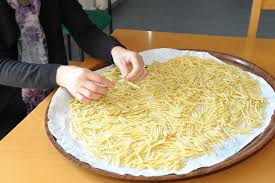Traditional Cyprus Pasta gets Geographical Indication protection
- IP News Bulletin
- Jul 28, 2022
- 1 min read
The "Makaronia tis Smilas / Makaronia tou Sklinitziou," a type of hand-made dried pasta made by combining durum wheat flour with a little salt and water, or by combining another type of flour with semolina, salt, and water, has received approval from the European Commission as a new protected geographical indication (PGI) from Cyprus.
The local know-how and regional knowledge of their manufacture gives "Makaronia tis Smilas / Makaronia tou Sklinitziou" its distinctive qualities. Particularly, the unique tool used to create the pasta is crucial.
It is deliberately chosen to have a thin, reed-like stem. Producing this pasta also requires the ability to arrange the pasta in drying baskets so that the individual pieces do not touch. During celebrations or special occasions, "Makaronia tis Smilas" and "Makaronia tou Sklinitziou" are frequently consumed. The new designation will be included in the existing list of 1587 agricultural and culinary goods in Europe.
Geographical indications create intellectual property rights for particular goods whose characteristics are directly related to the place of production.
Geographical indicators system in EU comprises of:
Protected Designation of Origin (PDO) (food and wine)
Protected Geographic Indication (PGI) (food and wine)
Geographical Indication (GI) (spirit drinks and aromatised wines).
The geographical indicators system of the EU defends the names of goods with particular qualities or a reputation associated with the area of production.
The main distinctions between PDO and PGI relate to how much of the product's raw ingredients must originate locally or how much of the manufacturing process must take place in that location. Spirit drinks and aromatized wines fall under the category of GI.











Comments